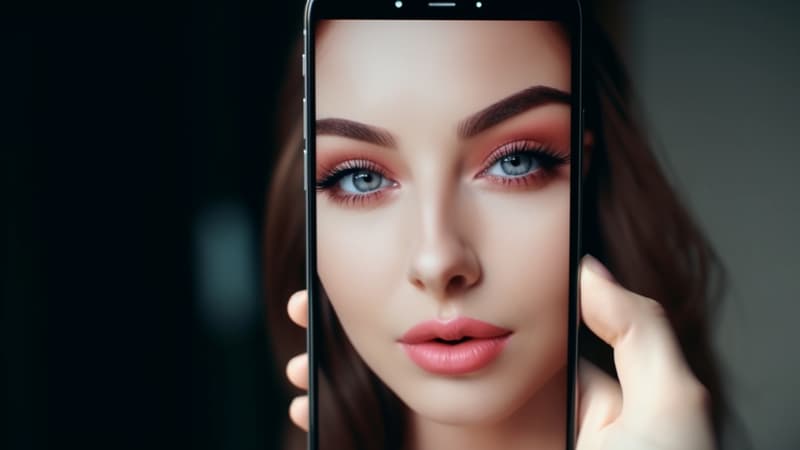To lose weight or rejuvenate, the beauty filters of social networks are the new distorting mirrors of the connected generation, which the government wants to regulate to limit the harmful effects on the youngest.
Its use has become common on platforms Tik TokInstagram or Snapchat, where they allow you to smooth the texture of the skin and remove wrinkles, refine the nose and face, add moles or apply virtual makeup.
On Friday, the government proposed making it mandatory to display a notice when a filter or edit is applied to promotional content posted by an influencer.
This measure, whose guidelines are not yet known, will form part of a bill that will be studied next week in a public session in the National Assembly. In 2017, the “Photoshop decree” already made it mandatory to mention “retouched photography” in ads for models whose silhouette had been modified.
And today, Instagram and Tik Tok they already allow you to show the filters used, so that subscribers can use them too. The latter, doped with artificial intelligence called “generative”, are also difficult to identify without this mention.
For example, the popular “Bold Glamour” filter has been used more than 28 million times on Tik Tok with many users complaining about significant differences between their “natural” and modified image.
Like thousands of anonymous people, celebrities such as the ex-model Carla Bruni or Miss France Iris Mittenaere have denounced, with supporting images, on Instagram the effect of this new beauty standard on the youngest.
According to Olivia Petit, a professor-researcher at Kedge Business School and a specialist in the effects of marketing on the brain, “the discrepancy between the real image and the enhanced image creates enormous dissatisfaction and discomfort among adolescents”, who are very receptive to the content of popular influencers. .
“Through these filters that we want to appear, there is a normalization of aesthetics”, which can encourage the use of cosmetic surgery, especially among women for whom “beauty criteria are much more marked”, he adds, interviewed by AFP. .
These kinds of special effects lead people to “go on excessive diets, compare themselves to others and lose self-confidence,” he adds.
Concerns shared by many social media users have already caused some brands to react, such as Dove, which in a recent campaign urged women to “turn their backs” on the “Bold Glamour” filter.
Source: BFM TV


